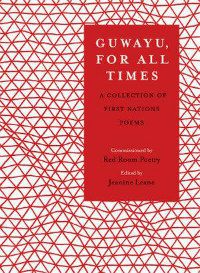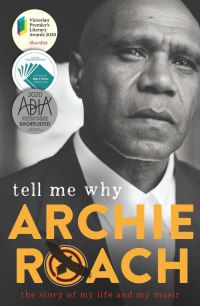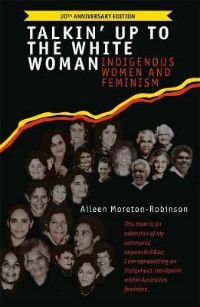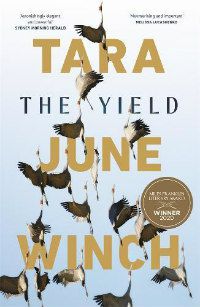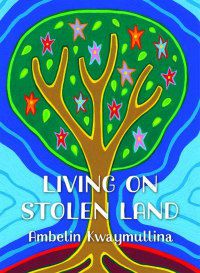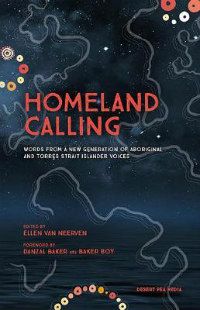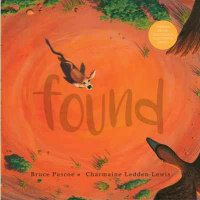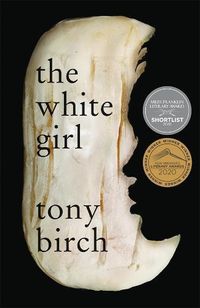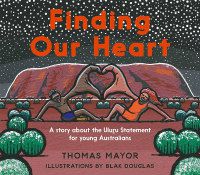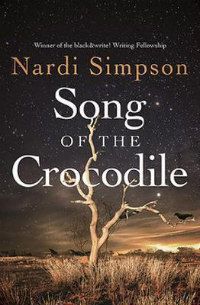Today is Indigenous Literacy Day. Here are some new and recent releases featuring First Nations voices that can help readers to better expand their minds and empathy towards the experiences of Aboriginal and Torres Strait Islander people.
You can find even more suggestions by browsing the collections below.
Guwayu, For All Times edited by Jeanine Leane
Guwayu, For All Times is a collection of First Nations poems commissioned by Red Room Poetry over the past 16 years, and is a radical literary intervention for its breadth of representation, temporal depth and diversity of language. This fiercely uncensored collection features 61 poems from First Nations poets in 12 First Nations languages, and together they are an exquisite expression of living First Nations culture. Journey through a range of poetic forms from lyric, confessional, protest, narrative and song, showcasing new voices and established poets.
Tell Me Why: The Story of My Life and My Music by Archie Roach
Not many have lived as many lives as Archie Roach – stolen child, seeker, teenage alcoholic, lover, father, musical and lyrical genius, and leader – but it took him almost a lifetime to find out who he really was. Roach was only two years old when he was forcibly removed from his family. Brought up by a series of foster parents until his early teens, his world imploded when he received a letter that spoke of a life he had no memory of. In this intimate, moving and often shocking memoir, Archie’s story is an extraordinary odyssey through love and heartbreak, family and community, survival and renewal – and the healing power of music. New to paperback, this award-winning book is a must-read account by an amazing Australian.
Talkin’ Up to the White Woman by Aileen Moreton-Robinson
This is the twentieth anniversary edition of distinguished Professor Aileen Moreton-Robinson’s ground-breaking and timeless analysis of the whiteness of Australian feminism and its effect on Indigenous women. From an Indigenous woman’s standpoint, as a Goenpul woman and an academic, she ‘talks up’, engages with and interrogates western feminism in representation and practice. Persuasive and engaging, Talkin’ Up to the White Woman is a timely and necessary argument for the inclusion of Indigenous perspectives in the teachings and practices that impact on Australia’s pluralistic society.
The Yield by Tara June Winch
Winch’s acclaimed second novel won the Miles Franklin Literary Award and the Christina Stead Prize for Fiction this year. Albert ‘Poppy’ Gondiwindi’s life has been spent on the banks of the Murrumby River at Prosperous House, on Massacre Plains. Albert is determined to pass on the language of his people and everything that was ever remembered. August Gondiwindi has been living on the other side of the world for ten years when she learns of her grandfather’s death. Her return home for the burial is bittersweet as she confronts the love of her kin and news that Prosperous is to be repossessed by a mining company. Determined to make amends she endeavours to save their land – a quest that leads her to the voice of her grandfather and into the past, the stories of her people, the secrets of the river.
Living on Stolen Land by Ambelin Kwaymullina
Living on Stolen Land is a short book written in prose poetry, that takes a powerful look at our colonial-settler ‘present’ and addresses a broad audience about the colonial contextual history of Australia in a highly original way. It pulls apart the myths at the heart of our nationhood, and challenges Australia to come to terms with its own past and its place within and on ‘Indigenous Countries’. An accessible and thought-provoking work by award-winning author, lawyer and academic Ambelin Kwaymullina, it speaks to many First Nations’ truths; stolen lands, sovereignties, time, decolonisation, First Nations perspectives, systemic bias and other constructs that inform our present discussions and ever-expanding understanding.
Homeland Calling edited by Ellen van Neerven
Homeland Calling is a collection of poems created from hip-hop song lyrics that channel culture and challenge stereotypes. Written by First Nations youth from communities all around Australia, the powerful words display a maturity beyond their years. Edited by award-winning author and poet Ellen van Neerven, the verses in this book are the result of young artists exploring their place in the world, expressing the future they want for themselves and their communities.
Found by Bruce Pascoe & Charmaine Ledden-Lewis
A calf in the Australian outback is scared to discover he can’t find his family. A man in a truck comes along and rounds up the calf, along with other terrified cows. The calf escapes, but realises that his mother has been captured. He wanders the landscape, finding other animals, but it’s not until he hears a familiar moo that he can be safe with his family once more. Written by award-winning author Bruce Pascoe, and illustrated by the winner of the Kestin Indigenous Illustrator Award, Charmaine Ledden-Lewis, this is a beautiful and allegorical picture book about the Stolen Generations.
The White Girl by Tony Birch
Odette Brown has lived her whole life on the fringes of a small country town. After her daughter disappeared and left her with her granddaughter Sissy to raise on her own, Odette has managed to stay under the radar of the welfare authorities who are removing fair-skinned Aboriginal children from their families. When a new policeman arrives in town, determined to enforce the law, Odette must risk everything to save Sissy and protect everything she loves. Miles-Franklin-shortlisted author Tony Birch shines a spotlight on the 1960s and the devastating government policy of taking Indigenous children from their families.
Finding Our Heart by Thomas Mayor & Blak Douglas
Since the Uluru Statement from the Heart was formed in 2017, Thomas Mayor has travelled around the country to promote its vision of a better future for Indigenous Australians. This is a young reader’s edition of Mayor’s bestselling book Finding the Heart of the Nation: The Journey of the Uluru Statement towards Voice, Treaty and Truth. It’s a richly illustrated picture book that uses clear language to introduce the idea that listening to First Nations voices is the way to find the heart of the nation. It elaborates how Indigenous Australian culture is a gift to the whole country, and the importance of stories, songs, dances, language and caring for the environment.
And coming soon…
Song of the Crocodile by Nardi Simpson
Darnmoor is the home of the Billymil family, three generations who have lived in this ‘gateway town’, where race relations between Indigenous and settler families are fraught. As progress marches forwards, Darnmoor and its surrounds undergo rapid social and environmental changes, but as some things change, some stay exactly the same. The Billymil family are watched (and sometimes visited) by ancestral spirits and spirits of the recently deceased, who look out for their descendants and attempt to help them on the right path. When the town’s secrets start to be uncovered the town will be rocked by a violent act that forever shatters a century of silence. Full of music, Yuwaalaraay language and exquisite description, Song of the Crocodile is a lament to choice and change, and the unyielding land that sustains us all.
Available from 29 September 2020


